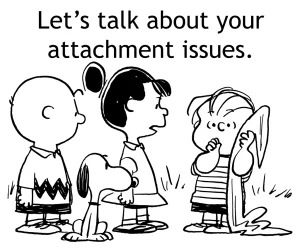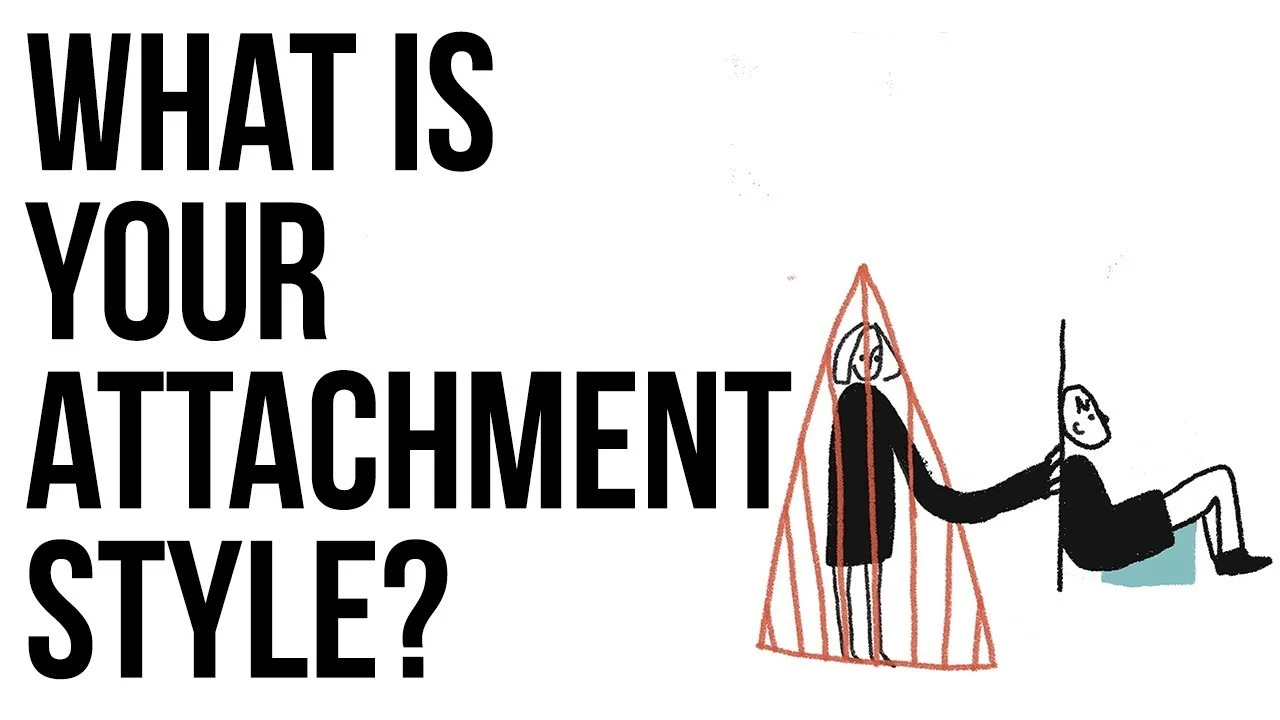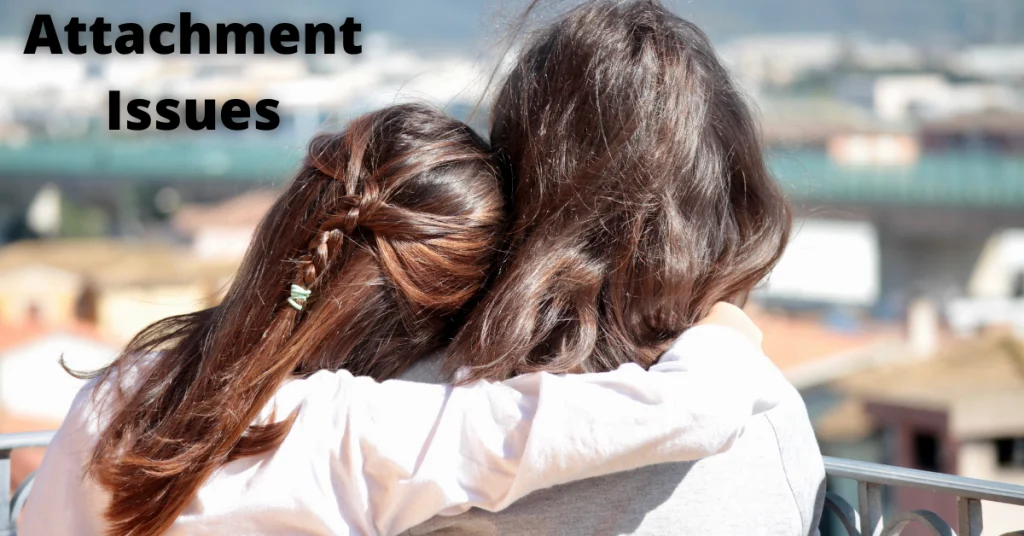People who have attachment issues often find themselves in a difficult position when it comes to forming and maintaining relationships. They may find it hard to trust other people, or they may be afraid of being hurt. This can lead to a lot of problems in their personal lives and in their relationships. In this blog post, we will discuss attachment issues in detail and provide some advice on how to deal with them.
Contents
- 1 What Are Attachment Issues?
- 2 Different Types of Attachment Issues
- 3 Symptoms of Attachment Issues
- 4 Causes of Attachment Issues
- 5 Impacts of Attachment Issues On Individuals
- 6 How To Treat Attachment Issues?
- 7 How To Prevent Attachment Issues?
- 8 Helping Someone With Attachment Issues
- 9 Conclusion
- 10 A Word From Therapy Mantra
What Are Attachment Issues?
 Attachment issues are when a person has difficulty forming and maintaining close relationships. This can be due to a variety of factors, such as being raised in an environment where there was little love or stability, being abused or neglected as a child, or having parents who were distant or unavailable.
Attachment issues are when a person has difficulty forming and maintaining close relationships. This can be due to a variety of factors, such as being raised in an environment where there was little love or stability, being abused or neglected as a child, or having parents who were distant or unavailable.
People with these issues may be overly needy and dependent on others, or they may push people away and isolate themselves. They may have difficulty trusting others, feel insecure in their relationships, and be very reactive to any perceived threat or slight.
These can cause a lot of pain and turmoil in people’s lives and can interfere with their ability to form healthy relationships. But with help and support, it is possible to overcome these difficulties and learn how to connect more deeply with others.
Different Types of Attachment Issues

There are many types of attachment issues, and they can manifest in different ways. Some of the most common include:
Anxious Attachment
People with anxious attachment issues are very insecure in their relationships and always worry that their partner will leave them. They often need constant reassurance from their partner and maybe overly needy or dependent.
Avoidant Attachment
People with avoidant attachment issues tend to push people away and isolate themselves from others. They don’t trust easily and feel uncomfortable being too close to someone.
Fearful Attachment
People with fearful attachment issues are constantly on edge around others, always afraid that they will be hurt or abandoned. They often have a lot of anger and resentment towards others and may act out aggressively or lash out emotionally. This also includes borderline personality disorder.
Codependent Attachment
Codependent attachment occurs when someone is in a relationship with someone who has an addiction or other type of pathology. The codependent person typically enables the addict and puts their own needs last. They may feel like they can’t live without the other person and have a lot of guilt and shame around their relationship.
Symptoms of Attachment Issues

Symptoms of attachment issues can vary from person to person, but some common symptoms include:
Insecurity
There is some sense of insecurity in all close relationships. This may manifest as a fear of being rejected or abandoned, always needing reassurance from the other person, or feeling like you’re not good enough.
Lack of Trust
People with attachment issues often have difficulty trusting others due to past experiences where they were hurt or let down. They may be very skeptical and guarded around others and find it hard to let their guard down.
Difficulty Expressing Emotions
People with attachment issues may find it difficult to express their feelings, either verbally or through body language. They may bottle up their emotions and feel like they can’t talk about them openly with anyone. This can lead to a lot of emotional turmoil and tension in the relationship.
Reactivity
People with these issues may be very reactive to any perceived threat or slight in the relationship. They may get defensive quickly, lash out at the other person, or withdraw completely.
Lack of Eye Contact
Sometimes there is also a lack of eye contact, especially when someone is feeling emotional or insecure. This can be a sign that they’re not really present at the moment and are withdrawing from the relationship.
Behavior Change
Sometimes there is also a sudden change in behavior, such as when someone who is usually very social becomes more reclusive or when someone who is usually very independent suddenly becomes needy and clingy.
Fear From Strangers
Sometimes there is also a fear from strangers. This may manifest as a fear of being touched or hugged by strangers, feeling uncomfortable in public places, or constantly scanning the room for potential threats.
Isolation
People with attachment issues may also isolate themselves from others and spend most of their time alone. They may have few friends and no close confidantes. If they are in a relationship, they may spend most of their time with their partner and avoid social activities.
Anger
This also includes anger. People with attachment issues may often feel a lot of anger and resentment towards others, especially those who have hurt them in the past. This can lead to a lot of conflict in relationships.
Changes In Mood
People with attachment issues may also have a lot of mood swings. They may go from being happy and upbeat to feeling sad and despondent very quickly. This can be very destabilizing for relationships.
Causes of Attachment Issues

There can be many causes of attachment issues, but some of the most common ones are:
Abuse
This is one of the most common causes of attachment issues. People who have experienced abuse often have difficulty trusting and forming relationships due to the hurt and betrayal they’ve felt.
Lack of Attachment In Early Childhood
If a person didn’t receive adequate care and nurturing in early childhood, it can lead to difficulties with attachments as an adult. This may be due to a lack of bonding with parents or caregivers, being raised in a dysfunctional home, or being neglected or abandoned.
Trauma
People who have experienced trauma such as physical or sexual abuse, war, natural disasters, or other traumatic events may also struggle with attachment issues. The trauma can leave them feeling scared and unsafe, which makes it difficult to trust others and form close relationships.
Genetics
There may also be a genetic component to attachment issues. If someone’s parents or other close relatives had difficulty with attachments, it’s more likely that they will too. This may also mean that you are more likely to pass on attachment issues to your own children.
Anger From Parents
This also includes anger. People with attachment issues may often feel a lot of anger and resentment towards others, especially those who have hurt them in the past. This can lead to a lot of conflict in relationships.
Parental Neglect
There can be many parents who do not give attention to the child and leave them feeling insecure, this can, later on, develop attachment issues. This can also arise when the child is constantly being changed or handed off to others for care, such as a grandparent or babysitter.
Substance Abuse
Sometimes this also can be a reason behind attachment issues. If one or both parents are addicted to drugs or alcohol, it can be very difficult for the child to form attachments due to the chaos and instability in the home. This also includes being around people who are constantly angry or volatile.
Impacts of Attachment Issues On Individuals
 There can be many effects of attachment issues on individuals. People with attachment issues often have difficulty forming close relationships, trusting others, and feeling safe in the world. They may feel like they are constantly on guard, always watching for signs that someone will hurt them. This can be very isolating and frustrating.
There can be many effects of attachment issues on individuals. People with attachment issues often have difficulty forming close relationships, trusting others, and feeling safe in the world. They may feel like they are constantly on guard, always watching for signs that someone will hurt them. This can be very isolating and frustrating.
People with attachment issues may also struggle with a lot of emotional turmoil. They may swing from being happy to feeling sad or angry very quickly. This can be very destabilizing for relationships. They may also have a lot of mood swings and experience a lot of conflict in their relationships.
Lastly, people with attachment issues often have low self-esteem and poor body image. They may see themselves as unworthy or unlovable. This can lead to a lot of self-destructive behaviors, such as substance abuse or self-harm.
How To Treat Attachment Issues?

There can be many ways to deal with attachment issues. Some of these are:
Therapy
This type of therapy usually focuses on helping the person to understand their attachment style and working through past hurts. This can be very helpful in improving relationships. It also means that the person can learn how to better cope with difficult emotions.
Medication
There are also medications that can be helpful in treating attachment issues. These include anti-anxiety or antidepressant medications. Sometimes these are used in combination with therapy.
Support Groups
There are also support groups available for people who struggle with attachment issues. This can be a great way to meet others who understand what you’re going through and get some helpful tips and advice.
Self-Care
It’s important to remember to take care of yourself when you’re dealing with attachment issues. Someof these self-care activities are:
- Getting regular exercise
- Eating a healthy diet
- Getting enough sleep
- Spending time with friends and family
- Volunteering or doing charity work
- Practicing relaxation techniques, such as yoga or meditation.
Support Groups
There are also support groups for people who struggle with attachment issues. This can be a great way to connect with others who understand what you’re going through and offer support.
Education
It’s also important for both individuals and parents to have education on attachment issues. This can help ensure that any potential problems are addressed early on and that everyone involved has a good understanding of what’s going on. It also can help to reduce the stigma attached to attachment issues.
How To Prevent Attachment Issues?

There can be a lot of ways to prevent these from developing in your child. Some of these are:
Create Good Environment
This method is all about creating a safe, stable, and nurturing environment for the child. This includes things like providing a good home life, positive role models, and plenty of love and affection.
Help Child Express Emotions
It’s important to help the child express their feelings in a healthy way. This can be done through things like talking openly about emotions, providing outlets such as art or music therapy, and helping them to understand their feelings.
Promote Socialization
Socialization is key when it comes to preventing these issues. Encouraging the child to participate in activities with others their age can help them learn how to form relationships and trust other people.
Provide Consistent Care
This means that caregivers should be consistent in their actions and be reliable. This will help the child to feel safe and secure, which is essential for healthy attachment development. This also includes being consistent with discipline.
Allow Child To Be Independent
You can also help to prevent attachment issues by allowing the child to be independent. This means giving them opportunities to explore and learn about the world on their own. It also includes trusting them enough to make decisions for themselves.
Encourage Positive Emotional Expression
You can also help to prevent these by encouraging positive emotional expression. This means accepting and praising the child’s emotions, even when they’re negative. It also includes being emotionally supportive.
Teach Child About Relationships
You can also help to prevent these by teaching the child about relationships. This can be done through things like talking about healthy relationships, providing books or stories that focus on positive relationships, and allowing them to observe healthy relationships firsthand.
Helping Someone With Attachment Issues

There are a lot of ways that you can help someone who is struggling with attachment issues. Some of these are:
Trying To Listen To Them
This also includes listening without judgment. People with attachment issues often feel like they are not understood or seen. Just by listening, you can show them that you care and that you want to help.
Offering Support
People with attachment issues may need a lot of support in order to work through their issues. This can include emotional support as well as practical support. You may need to be there for them during tough times and help them to find resources that can help them improve their situation.
Being There For Them
It’s important to be there for the person with attachment issues no matter what. They may need someone to talk to, someone to lean on, or just someone who will accept them unconditionally. Just being there for them can make a big difference.
Helping Them Practically
This also means helping out with things like household tasks, taking care of children, or providing transportation. It can be a lot for someone to handle on their own, so practical help can be very beneficial.
Encouraging Them To Seek Help
Many people with attachment issues are hesitant to seek help. You can encourage them to do so by telling them about the benefits of getting help. Some can also offer to go with them to their first appointment or be there for support afterward. You can also connect them with resources like support groups or therapists.
Conclusion
Attachment issues can be very difficult to deal with. They can cause a lot of turmoil in relationships and lead to low self-esteem and self-destructive behaviors. However, there are many ways to treat these issues. Therapies, medications, and support groups are available to help people struggling with attachment issues. It’s also important for both individuals and parents to have education on attachment disorders so that any potential problems can be addressed early on. There are many ways to prevent attachment issues from developing, such as creating a good environment, helping the child express emotions, and promoting socialization. Consistent care is key in preventing attachment issues. If you or someone you know is struggling with attachment issues, please seek help. There is hope and help available.
A Word From Therapy Mantra
Your mental health — your psychological, emotional, and social well-being — has an impact on every aspect of your life. Positive mental health essentially allows you to effectively deal with life’s everyday challenges.
Also, at Therapy Care, we have a team of therapists who provide affordable online therapy to assist you with issues such as depression, anxiety, stress, relationship, OCD, LGBTQ, and PTSD. You can take our mental health test. You can also book a free therapy or download our free Android or iOS app.


